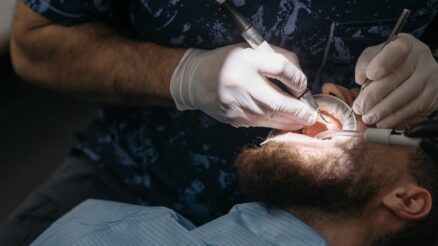When it comes to our furry friends, their health and well-being are of the utmost importance. We often associate skin allergies with itchiness and rashes, but did you know that these allergies can also impact the health of their eyes?
This article will explore the vital link between eye health and pet skin allergies, offering expert perspectives from veterinary ophthalmologists. If you’re curious about how these two aspects are connected, continue reading.
Understanding the Intricate Connection
Like humans, our pets’ eyes are windows to their overall health. Skin allergies can profoundly affect their eyes, leading to various ocular issues. The connection between skin allergies and eye health is the body’s immune response to allergens; when pets come into contact with allergens, whether from the environment, food, or parasites, their immune system reacts, triggering inflammation in the skin and the eyes’ delicate tissues.
The Role of Veterinary Ophthalmologists
When addressing eye health concerns related to pet skin allergies, veterinary ophthalmologists and internal medicine vet are the experts to turn to. These specialized professionals focus on diagnosing and treating eye conditions in animals. They deeply understand pet eyes’ intricate anatomy and physiology, allowing them to identify and manage skin allergies’ ocular manifestations effectively.
The Diagnostic Journey with Veterinary Ophthalmologists
If your pet is experiencing eye issues associated with skin allergies, seeking the expertise of a veterinary ophthalmologist is crucial. Let’s explore on this page the critical steps involved in their diagnostic process:
Step 1: Comprehensive Eye Examination
- The veterinary ophthalmologist will begin by thoroughly examining your pet’s eyes, paying attention to any signs of inflammation, redness, discharge, or irritation.
- They may use specialized tools and equipment to assess the structures of the eyes, including the cornea, conjunctiva, and eyelids.
Step 2: Medical History and Allergy Assessment
- To understand the link between eye issues and skin allergies, the veterinary ophthalmologist will gather your pet’s medical history, including their skin allergy symptoms.
- They will inquire about potential triggers or allergens that may be causing the eye problems, such as pollen, dust mites, certain foods, or contact with irritants.
Step 3: Treatment and Management
- Once the veterinary ophthalmologist has diagnosed and established the connection between skin allergies and eye health, they will develop a tailored treatment plan.
- This may involve prescribing medicated eye drops or ointments to reduce inflammation, suggesting antihistamines to alleviate itching, or recommending lifestyle modifications to minimize exposure to allergens.
Specialty Vet Services
Several veterinary clinics offer comprehensive services if you seek specialized care for your pet’s eye health and skin allergies. These clinics have teams of experienced veterinary ophthalmologists who can provide the necessary expertise and care for your furry companion. Some examples of specialty vet services in Vancouver include:
- With expertise in ophthalmology and internal medicine, they provide a wide range of services to address eye health concerns associated with skin allergies.
- With a team of skilled veterinary ophthalmologists and advanced diagnostic equipment, they offer specialized care to manage ocular manifestations of skin allergies.
Conclusion
As pet owners, we must recognize the intricate link between eye health and skin allergies in our furry friends. Veterinary ophthalmologists play a vital role in diagnosing and managing the ocular manifestations of these allergies. By seeking their expert guidance, we can ensure that our pets receive the care they need to maintain healthy eyes and overall well-being. Remember, when it comes to your pet’s eye health and skin allergies, the expertise of veterinary ophthalmologists can make all the difference!


